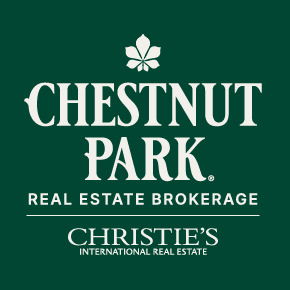There are thousands of available homes on MLS that may be perfect for you! Include your name and email address below to receive your custom list of new available homes in your desired neighbourhoods each morning. You will often receive new listings before they appear on other sites such as REALTOR.ca, giving you a head start with your search.

Once again, the Toronto and area resale market delivered eye-popping results. As compared to last January sales were up by over 52 percent and the average sale price increased by almost 16 percent. In absolute numbers January produced an unprecedented 6,928 sales – there were only 4,546 last year – and the average sale price came in at $967,885 for all properties sold throughout the greater Toronto area. It was only $838,000 last year.
But the market was not homogenous. Within the City of Toronto, sales were dominated by condominium apartments. Over 55 percent (1,703 apartments) of all reported sales were condominiums. That was a shocking 85 percent increase compared to the number of condominium apartments sold last year. In the last two months, condominium apartment sales in the City of Toronto have come roaring back erasing the mid-pandemic declines they had experienced.
That was only part of the story. While sales were soaring, average sale prices continued to decline. By month-end, condominium apartment prices in Toronto’s 416 region had declined by 8 percent. The situation was more extreme in Toronto’s central core. Almost 70 percent of all Toronto condominium apartment sales are located in Toronto’s central districts, primarily downtown. Last year the average sale price for condominiums in Toronto’s central districts was $758,000. In January, the identical apartments were selling for $661,000, 13 percent less. With such steep price reductions, it is not surprising that buyers are flocking to the condominium apartment market.
The other market story is Toronto’s suburbs, the 905 region. Not only are more sales taking place in the region, but at rapidly rising prices. In January the average sale price in the 905 region was more than 10 percent higher than the average sale price in the City of Toronto ($866,331). Halton (Burlington, Halton Hills, Milton, and Oakville) and York Region (Aurora, East Gwillimbury, Georgina, King, Markham, Newmarket, Richmond Hill, Vaughan, and Whitchurch-Stouffville) both produced average sale prices for all properties reported sold of more than $1,160,000.
Higher priced properties throughout the greater Toronto area sold at a pace not seen before for January. In January 331 properties were reported sold having a sale price of $2 million or more. That amounts to a shocking 155 percent increase compared to the 130 properties that sold in this category in 2020, and only 76 in 2019. This is an amazing accomplishment, and it demonstrates that robust sales of properties in the greater Toronto area are taking place in all price categories.
Aside from the issue of sustainability, the perennial concern, as we move into February, inventory levels remain a problem. At the end of January, there were only 7,396 properties available to buyers, almost 5 percent fewer than last year. The bulk of those listings (44 percent) are condominium apartments. There simply aren’t enough ground level, freehold properties to meet demand. It is the rarest of occurrences when new listing offerings aren’t greeted by multiple offers – many multiple offers.
Looking forward, February will be an even stronger month than January. Early February data indicates that the resale market will exceed last February’s results by at least 50 percent and that the average sale price, both in the City of Toronto and the surrounding 905 region, is on an upward trajectory. Cheap money – five year mortgage interest rates at less than 2 percent & Government stimulus, and the consumers’ frantic psychological need to acquire real estate, preferable low rise, with outdoor space, will continue to drive this frenzied market for the foreseeable future.
Prepared by Chris Kapches, LLB, President and CEO, Broker, Chestnut Park® Real Estate Limited, Brokerage.
Have questions about the market or selling or buying?
Contact me any time. I’m happy to answer any questions you may have.

December’s Toronto and area residential marketplace exhausted all the superlatives that we would normally apply to a robust resale market. Not only was December’s housing market strong by historical standards, but it dramatically exceeded historic norms, performing more like a spring market than what we have come to expect of property sales during the holiday season. It’s almost as if the holiday season didn’t exist, and unfortunately, because of the restrictions imposed by the effects of Covid-19, normal retail shopping was non-existent. Deprived of retail shopping, it appears that buyers focused their attention on housing instead.
December saw 7,180 residential properties reported sold. That is an eye-popping 65 percent increase compared to the 4,364 properties reported sold last December. December 2019 was a very strong month. For example, only 3,746 properties were reported sold during December 2018. It’s not surprising that with this surge of sales, we also witnessed a surge in the average sale price. On a year-over-year basis, the average sale price for all properties sold in the greater Toronto area increased by more than 11 percent, from $838,662 last year to $932,222 this December.
No doubt this huge jump in average sale price was driven by the number of higher-priced properties that changed hands in December, normally a quiet month for luxury property transactions. In December, 287 properties having a sale price of $2 million or more were reported sold. That compares with only 125 last year, an increase of 130 percent. Not surprisingly more than 90 percent of those properties were detached single-family homes in the 416 and 905 regions.
December’s condominium apartment sales require extra attention. Both during the third and forth quarters of 2020 condominium apartment sales and prices declined, in some cases substantially, namely in Toronto’s central core, while inventory levels increased dramatically. In December, we saw a stunning resurgence of condominium apartment sales. In Toronto’s 416 region, sales increased by 80 percent compared to December 2019. In the 905 region condominium apartment sales were equally as strong, increasing by 75 percent. In the 416 region, there was no corresponding increase in average sale prices. In fact, quite the opposite: average sale prices declined by 5 percent. In Toronto’s central core, where most of the City’s apartment projects are located the decline was even steeper. Prices fell by almost 10 percent, from $733,000 in December 2019 to $669,000 this year. Central core condominium apartment sales accounted for almost 67 percent of the city of Toronto’s total condominium apartment sales. It should be noted that condominium apartment sales in the city’s eastern districts not only doubled, but average sale prices actually increased from $476,000 last year to $512,000, bucking the trend in the central core.
The increase in condominium apartment sales at lower average sale prices shifted the variance between average sale prices overall between the 416 and 905 regions. Before December the average sale price in the 905 was always less than the 416. Not this year. The average sale price for the greater Toronto area came in at $932,000. It was 4 percent less in the city of Toronto ($894,000), all as a result of the massive increase of condominium apartment sales at sharply falling prices.
It will be interesting to see if December’s condominium apartment sales were a market anomaly. It may be that the more affordable prices have overcome buyer’s need for space and safety. This phenomenon might also be driven by the fact that prices in the 905 region have risen to prohibitive levels.
Having said that sales of ground level properties, detached, semi-detached and townhouses were robust both in the 416 and 905 regions. Price increases in the 905 eclipsed price increases achieved in the 416 region. Interestingly even condominium apartment average sale prices increased by over 6 percent in the 905 region, a stark contrast to what we witnessed in Toronto’s central core.
Overall, more than 95,000 properties were reported sold in 2020, a 9 percent increase compared to the 87,751 properties reported sold last year. Notwithstanding the unprecedented socio-economic upheaval experienced universally in 2020 as a result of the pandemic, the Toronto and area resale market results were the third best on record. An extraordinary accomplishment!
Looking at 2021 the economic factors that drove the 2020 housing market remain in place. The key factors are exceptionally low mortgage interest rates, government stimulus, and a roaring stock market. With interest rates as low as they are, asset acquisitions will continue to drive the housing market. It is impossible to see a change in this scenario until borrowing money becomes substantially more expensive than what it is at the beginning of 2021.
Prepared by Chris Kapches, LLB, President and CEO, Broker, Chestnut Park® Real Estate Limited, Brokerage.
Have questions about the market or selling or buying?
Contact me any time. I’m happy to answer any questions you may have.

The Toronto and area residential resale market continued its torrid pace in November, defying all expectations and forecasts. It wasn’t, however, homogenous in its performance, with different housing types and areas performing at dramatically different levels.
Overall, reported sales for the greater Toronto area were up a scorching 24.3 percent compared to November 2019. Last year, 7,054 residential properties were reported sold. This year that number jumped to 8,761. That number was driven primarily by the sale of ground-level properties, detached, semi-detached, and townhouse homes. Sales of these types of homes increased in both the City of Toronto and the 905 region, and correspondingly, so did average sale prices.
In November, the average sale price for all properties sold across the greater Toronto area came in at $955,615. This number was more than 13 percent higher than the $843,307 achieved in November of 2019. In the City of Toronto, the average sale price was even higher, coming in at $979,224. These numbers would have been even higher if not for the lagging performance of condominium apartment sales in the City of Toronto.
Once again, as in previous months, resale data indicates that market activity has shifted from the City of Toronto to the 905 region. The 905 region includes Halton, Peel, York, Durham, Dufferin, and Simcoe Counties. Of the 8,761 reported sales for the greater Toronto region, 5,729, or 65 percent, were in the 905 region. What we also witnessed in November was the average sales price gap between the City of Toronto and the 905 region is narrowing. For the third straight month, average sale price gains in the 905 region far outdistanced gains in the City of Toronto. The average price increase for all property types in the City of Toronto was 5.5 percent. In the 905 region the average sale price jumped by 14 percent. Even if condominium apartment sales were extracted from these numbers, gains in the 905 were at least double the average sale price gains in the City of Toronto.
Except for condominium apartment sales in the City of Toronto the entire resale marketplace continued to move at a torrid pace. In November, all sales across the greater Toronto area sold (on average) in only 19 days, 26 percent faster than the 24 days it took last year. The pace for semi-detached properties in the City of Toronto was even more hectic. All semi-detached properties sold in only 14 days. Toronto’s eastern districts, which include the popular Riverdale, Leslieville, and Beaches trading areas, saw semi-detached properties sold in only 11 days, and (on average) for 109 percent of their asking price. The average sale price for the combined eastern districts for semi-detached properties exceeded $1 million, with substantially higher average sale prices in the most popular neighbourhoods. Similar results were achieved in Toronto’s western districts. Because of higher price points, Toronto’s central district sales were a little slower (20 days) but still managed to achieve sales prices that were 102 percent of the asking price.
It should be noted that the high end of the market also put on a strong performance. Throughout the greater Toronto area, 356 properties with an average sale price of $2 million or more were reported sold in November. This compares with only 199 sold in the same category last year. On a year-to-date basis, 3,363 $2 million plus properties have been reported sold. Last year, at the end of November, 2,171 properties at this price point were reported sold. This year’s sales represent a 55 percent increase in high-end property sales compared to 2019.
If there is a dark spot in the greater Toronto resale marketplace it’s condominium apartment sales in the City of Toronto. In November, sales were flat, and average sale prices fell off by 3 percent. Unfortunately, that’s not the whole story. Inventory levels are increasing dramatically. In November, 2,943 new condominium apartments came to market (some of these were no doubt new listings of units that hadn’t sold and were being re-introduced to the market, often at lower asking prices). Last year, only 1,629 new listings came to market. November’s new listings increased the total number of active listings to 5,018, 194 percent higher than the 1,707 condominium apartments available to buyers at the same time last year.
On a more positive note, by the end of November, year-to-date, 88,026 properties (all types) were reported sold for the greater Toronto area. Total sales for 2019 were only 87,753. Notwithstanding the pandemic, and its negative impact on our society, our businesses, and our health and safety, with December still to be counted, 2020 will be the Toronto and area’s best year for resale house sales since 2016. Astonishing.
Prepared by Chris Kapches, LLB, President and CEO, Broker, Chestnut Park® Real Estate Limited, Brokerage.
Have questions about the market or selling or buying?
Contact me any time. I’m happy to answer any questions you may have.

It was no surprise that October’s resale market results continued the record pace that began in June. Reported sales hit a new high in October, with 10,563 residential properties trading hands during the month, a 25 percent increase compared to last year. Not only were sales volume at record levels, but average sale prices also continued their steady upward march. Last October, which was a strong month, 8,445 properties were reported.
This October there was also a sharp rise in the average sale price. Last October the average price for all properties sold was $851,877. This year the average sale price increased by almost 14 percent to $968,318. Depending on the location the average sale price was even higher. In the City of Toronto, the average sale price came in at $1,025,925. This number is startling when it is remembered that it includes 1,438 condominium apartment sales or 40 percent of the 3,514 properties that sold in the City.
The Toronto and area residential market is now all about fragmentation, a phenomenon driven by the pandemic and the psychological and physical impact that it has had on the residential market, both locally and throughout North America. People’s desire for more space, coupled with technological advances that allow people to work remotely, have untethered buyers from dense, crowded urban regions, allowing them to move to new marketplaces. That movement is clearly reflected in the October data.
There were 3,514 properties reported sold in the City of Toronto, (including condominium apartments). That represented a 6.6 percent increase compared to the 3,295 that sold last year. In the 905 region of greater Toronto, 7,049 were sold in October. Last year only 5,196 properties were reported sold in the same month. The year-over-year increase in the number of sales in the 905, namely 36 percent, dwarfs the increase in sales in the City of Toronto. Clearly, buyers were active in Toronto’s 905 region. No doubt a large part of those buyers were former City of Toronto condominium apartment dwellers looking for ground-level properties.
The exodus to the suburbs and the 905 region is no more evident than the impact it has had on both the condominium apartment and rental markets. In October, 1,438 condominium apartments were reported sold in the City of Toronto. Last year 1,575 were sold. This decline of 8.5 percent is one of the first declines we have witnessed in more than 10 years. Condominium apartments have been Toronto’s only affordable alternative. Detached and semi-detached properties, given their stratospheric increases in average sale prices, have been beyond the financial reach of most buyers, especially first-time buyers.
Declining sales usually mean declining average sale prices, unless the decline in sales is due to a decline in inventory. Unfortunately, condominium apartment supply has skyrocketed. In October, 4,494 new listings came to market, bringing the total available inventory at month end to 5,719 condominium apartments. By comparison last October only 2,213 new listings came to market, 50 percent fewer than this year. At the end of October last year there were only 2,098 condominium apartments available for sale, 63 percent fewer than this year. It is not surprising therefore that the average sale price for condominium apartments, namely $668,161, was almost 1 percent less than a year ago. Rentals of condominium apartments are suffering the same fate, with rising inventories and declining monthly rental rates.
Detached and semi-detached property sales were robust in October, increasing by 20 and 30 percent respectively as compared to last year. The average sale price for detached properties increased by more than 11 percent and semi-detached by only 5 percent, to $1,470,857, and $1,154,087 respectively in the City of Toronto.
It should be noted that the high-end of the market has been performing exceptionally well. Across the greater Toronto area, 488 properties having a sale price of $2 Million or more were reported sold in October. In 2019, only 254 were reported sold in this category, a year-over-year increase of 92 percent. The majority of these sales were ground level properties, with only 20 condominium apartments falling into this category.
As we move towards the end of 2020, without any anticipated change to the economic and psychological conditions that have given rise to the exceptional, though fragmented market that we have experienced for the last five months, all expectations are that it will continue, particularly if interest rates stay at their historically low rates, and if governments keep the pandemic damaged economy liquid. The fragmentation will continue to see strong demand in the 905 region and in the secondary markets surrounding the greater Toronto area. We can expect condominium apartment sales and price pattern so clear in October to continue: both sales and average sale prices will continue to decline while inventory levels will approach historic highs.
Prepared by Chris Kapches, LLB, President and CEO, Broker, Chestnut Park® Real Estate Limited, Brokerage.
Have questions about the market or selling or buying?
Contact me any time. I’m happy to answer any questions you may have.

We have run out of superlatives to describe the greater Toronto residential resale marketplace. Records have been broken consistently for the last few months, and September was no exception. Two records were shattered in September: most sales ever recorded for the month, and the highest average sale price for all properties reported sold.
In September 11,083 residential resale properties were reported sold. This is more properties reported sold than in any previous September. By comparison, last September 7,791 properties were reported sold. This year’s sales were 42.3 percent higher than reported sales in 2019. September’s sales brought the year-to-date total to 68,793, 1 percent higher than the number of reported sales at the same period last year. This means that in the last four months the market has made up for the momentum lost during the implementation of the lockdowns and the provincial emergency measures designed to contain the spread of the Coronavirus in March.
The second record was the average sale price for all properties sold. In September it came in at $960,772. The previous record was set in August at $951,536, and the record before that was set in July at $943,609. September marks the fourth consecutive month in which a new average sale price record has been set. It is almost unfathomable that in April the average sale price was only $820,222. Since April it has increased by 17 percent.
It should be noted that in the city of Toronto the average sale price came in at $1,022,051. This is an astounding number when it is remembered that of the 3,551 recorded sales in the city of Toronto, 1,549, or 44 percent, were condominium apartments. During the pandemic condominium apartments have been out of favour. Buyers have sought out ground level properties that offer outdoor space. In September the average sale price for all condominium apartments sold only rose by 7.7 percent compared to the same month last year. Detached home prices increased by 9.4 percent and semi-detached home prices increased by 7.2 percent (in the city of Toronto).
For the third consecutive month more listings came to market compared to the same month last year. In September 20,420 new properties came to market, a 31 percent increase compared to the 15,616 that came to market last September. Due to the incredible absorption rate in September (11,083 sales), at month end there were 18,167 properties available to buyers, a mere 5 percent increase compared to the 17,254 available last year. In order to experience a balanced market, the marketplace would require an available inventory of at least 25,000 active listings. It is not surprising, given the absorption rate, that throughout the greater Toronto area all properties (on average) sold in just 16 days.
During the pandemic there has been an explosion of higher priced property sales. In September 461 properties having a sale price of $2 million or more were reported sold. This represents an 86 percent increase compared to the 248 properties reported sold in 2019. No doubt the need for space, coupled with historically low interest rates (5 year mortgage rates at less than 2 percent) have driven those that can afford it to larger more expensive properties.
September’s market data provides some empirical proof that buyers are looking for space and ground level properties far from the core of the city of Toronto. Although sales were strong in the city of Toronto – 3,555 sales which amounted to a 20 percent increase compared to the 2,987 properties reported sold in 2019 – that paled compared to what happened in Toronto’s 905 region.
Of the 11,083 reported sales in September, 7,528 of them were in the 905 region. Last September only 4,804 properties were reported sold in the region. Year-over-year this represents a 57 percent increase in the number of sales, substantially and dramatically higher than the city of Toronto. Also, in September, the average price rose by approximately 12 percent in the city of Toronto but by almost 17 percent in the 905 region with South Simcoe County, the region furthest north from Toronto, registering an average sale price increase of 20 percent compared to last year. At this rate average prices in the 905 region will not remain lower than prices in the city of Toronto for much longer. The average priced property in the 905 region, however, does buy more land, and more space compared to similarly priced properties in Toronto. It should be noted that some districts in the 905 region have also become pricey. In September the average price in Halton region was $1,087,859 and $1,066,380 in Peel, both higher than the average price for all properties sold in Toronto ($1,022,051).
Early data for October indicates that it will be as robust as September. Those buyers that have had not been directly and economically affected by the pandemic continue their quest to purchase properties that not only meet their needs but that can act as a sanctuary in these uncertain times. They do so while having access to mortgage financing at less than the rate of inflation.
Prepared by Chris Kapches, LLB, President and CEO, Broker, Chestnut Park® Real Estate Limited, Brokerage.
Have questions about the market or selling or buying?
Contact me any time. I’m happy to answer any questions you may have.

Another astounding month for the Toronto and area residential resale market place. August broke two records: one for most sales ever recorded for the month of August and two, the highest average sale price for all properties sold in the history of record-keeping for the Toronto and area market place.
Toronto and area realtors reported 10,775 sales in August. These sales represent a shocking 40.3 percent increase compared to the 7,682 sales reported last year, which was a very respectable August for reported sales. This dramatic increase was predominately driven by an increase in sales of detached and semi-detached properties.
In the City of Toronto detached property sales increased by 65.3 percent and semi-detached properties by an eye-popping 81.2 percent compared to last August. Condominium apartments, for reasons discussed in my July report, did not fare nearly as well, rising by only 9.2 percent.
The Toronto and area average sale price record has now been exceeded for three consecutive months. June’s average sale price of $931,302 exceeded the previous record of $920,000 achieved in April of 2017, the month during which the then provincial government legislated the foreign buyers tax. In July, the average sale price jumped to $943,666, another record. This August it moved closer to the magical $1 Million mark coming in at $951,4014, the new record for Toronto and area resales.
The $1 Million mark has been exceeded for some time in the City of Toronto. Notwithstanding the mix of less expensive condominium apartments, the average sale price for all property sales in Toronto came in at $1,012,506, an amazing 24 percent increase compared to only a year ago. No doubt this increase was driven by the 413 reported sales during the month having a sale price of $2 Million or more, most of which were located in the City of Toronto. The average sale price in the 905 region, by comparison, was only $906,440 for all property types sold in August.
It is not surprising that sales took place at the real estate equivalent of the speed of light. All 10,775 sales for the month took place in only 17 days (on average) after hitting the market. By comparison last year it took 25 days on the market for properties to sell, an improvement of 32 percent. For some property types and depending on location sales took place even faster.
For example detached properties in the City of Toronto sold in only 16 days and for 101 percent of their asking price. Semi-detached properties sold even faster, in only 10 days and for an incredible 108 percent of their asking prices.
In Toronto’s eastern districts the pace of sales was record-breaking. All semi-detached properties sold in only 8 days and for an amazing 112 percent of their asking prices. There was a glimmer of hope for frustrated buyers in August. For the first time since the pandemic, August saw a dramatically high number of new listings coming to market. Almost 18,500 new properties came available to buyers, 56.8 percent more than became available in August 2019. Last year only 11,789 properties came to market.
Due to the high absorption level in August (10,775 sales) at month end there were still only 16,662 properties on the market throughout the greater Toronto area, only 5 percent more than the 15,870 available last year. If new listings continue at August’s pace into September, they will have a profound impact, helping the market to move away from the extreme seller’s market we have been experiencing and ultimately having a moderating affect on average sale prices.
Early September data indicates that September 2020 may be another record-breaking month both as to the average sale price and the number of reported sales. Stay tuned!
Prepared by Chris Kapches, LLB, President and CEO, Broker, Chestnut Park® Real Estate Limited, Brokerage.
Have questions about the market or selling or buying?
Contact me any time. I’m happy to answer any questions you may have.

July’s residential resale market performance was record-breaking. Almost 11,100 properties were reported sold, a 28 percent increase compared to the 8,679 properties sold a month earlier. Compared to July 2019, sales improved by almost 30 percent. There were 8,555 residential properties reported sold last year. July’s numbers are the clearest indication as to the robustness and resilience of the Toronto marketplace, especially when fuelled by record-low mortgage interest rates.
It is no surprise that average sale prices have also increased, also to record levels. In July the average sale price for all properties sold in the greater Toronto area came in at $943,710, surpassing June’s record-breaking average sale price of $931,221. By comparison, last July the average sale price was only $806,971. Notwithstanding the impact of the Covid-19 pandemic, today’s average sale price is 17 percent higher than only a year ago.
In the City of Toronto, the average sale price is even higher. It came in at $1,017,320. This number is particularly impressive when it is remembered that it includes 1,689 condominium apartment sales out of a total of 3,577 properties reported sold.
It is also worth noting that the higher-end of the marketplace exploded in July. In July 452 properties having a sale price of $2 million or more were sold. By comparison, only 185 properties in this category were reported sold last year, an eye-popping increase of 144 percent. No doubt the resurgence of the equity markets has bolstered the confidence of purchasers of higher-priced properties.
The entire residential market has not reacted to the pandemic and its impact on the local economy equally. Condominium apartment sales were negatively impacted during the second quarter of 2020. The quarter saw the tightest economic restrictions and the resulting economic fallout. During the second quarter (ending June 30th), condominium apartment sales were down by over 50 percent, and new listings over the same period were down by almost 22 percent. Notwithstanding these very negative numbers, the average sale price increased by 5.1 percent to $619,707.
In July there was evidence that the condominium apartment market was making a recovery from its poor second quarter performance. In July sales modestly rose by 4.7 percent compared to last year. Sale prices were more robust, rising by almost 9 percent to $682,999 in the greater Toronto area. In the City of Toronto’s central core, the average sale price was a stunning $746,204.
The rental market was also negatively impacted by the pandemic in the second quarter. A combination of restrictions on showing condominium apartment units for rent and job losses across a multitude of economic sectors dampened demand for rental accommodation. As a result, condominium apartment rentals in the second quarter were down by 25 percent compared to the second quarter of 2019, where the number of available condominium apartments increased by 42 percent to 21,703. Not surprisingly, average rents have declined across the board from bachelor to three-bedroom apartments. Except for bachelor apartments, rents declined, on average, by 5.5 percent from a year ago. Bachelor apartment rents, understandably, declined by almost 10 percent. Increased choice has allowed tenants to negotiate rents downwards, a reversal of years of constantly rising rent levels.
Early August results indicate that the resale market will produce strong numbers once again, although not quite as robust as July. On a year over year basis sales will be approximately 10 percent higher than August of last year. It cannot be over emphasized that mortgage interest rates of less than 2 percent will continue to drive the Toronto and area resale market, even in the face of the negative economic impact of the pandemic. Those rates are not expected to rise for some time, perhaps as late as the end of 2021.
Prepared by Chris Kapches, LLB, President and CEO, Broker, Chestnut Park® Real Estate Limited, Brokerage.
Have questions about the market or selling or buying?
Contact me any time. I’m happy to answer any questions you may have.

By any standards, the residential resale market’s recovery in June was nothing but phenomenal. The lockdown and emergency measures implemented by the Province in mid-March literally brought the market to a standstill. It stayed that way throughout April, but by early May, we could sense recovery. By May the industry, agents, buyers and sellers had adjusted to the rigid in-person showing protocols – masks, gloves, sanitizers, social distancing, and no-touch viewings. Also, by May, the pent up demand, already present before the pandemic, began to push against the restrictions imposed by Covid-19 and sales began to take place.
In June sales flourished. There were 8,701 reported sales in the greater Toronto area, only 1.4 percent fewer than the 8,826 sales reported last year. That is a 19 percent increase compared to the 2,961 sales achieved in April, and an 89 percent increase compared to the 4,601 reported sales in May. These numbers represent an unprecedented recovery. Most economists had predicted a much more protracted recovery, a recovery resembling the economic recovery following the collapse of the equities market in 2008.
Unlike sales, which declined in March and then recovered in June, average sales prices did not noticeably decline during this period. In fact, they continued to strengthen, approaching record levels. In June the average sale price for all properties sold in the greater Toronto area come in at an eye-popping $930,869, 12 percent higher than last year’s average sale price of $831,882. In the City of Toronto, the average sale price came in at $1,022,138. Not quite a record but approaching one, and well above Canada Mortgage and Housing Corporation’s $1 Million threshold for high ratio loans. Housing in the City of Toronto experienced increases in all housing types – detached (14.3 percent), semi-detached (an amazing 22 percent), and condominium apartments (5.6 percent) compared to the same month last year.
These increases were stimulated by the resurgence of the high-end market, which was slower in its recovery than lower price-point properties. In June 365 properties with a sale price of $2 Million or more were reported sold. This represents a 42 percent increase compared to the 257 reported sold in this price category last year. It is worth noting that at the market’s lowest point in April, only 67 properties were reported sold in this category. No doubt with the recovery of equity markets over this period, confidence at the higher price points has returned.
Semi-detached properties throughout the City of Toronto were the most sought-after housing type. They were literally flying off the shelf. The average sale price for semi-detached properties came in at a record $1,287,832. Not only was the average sale price a record, but all semi-detached properties sold, in another record, in only 9 days. Not only did they sell in 9 days, but they sold for 106 percent of the asking price. In Toronto’s eastern districts, all semi-detached properties sold, in a record 6 days, for 110 percent of their asking price. In the trading areas closest to Toronto’s central core (Riverdale, Leslieville, the Beaches) in 5 days and for more than 110 percent of asking price. These are extraordinary numbers and an unprecedented market performance.
The one area of continuing concern is supply, although there was some marginal improvement in June. In June 16,153 new properties came to market. A slight increase compared to the 15,824 that came to market last year. Unfortunately, at month-end, there were only 14,001 properties available for buyers throughout the greater Toronto area, almost 30 percent fewer than the 19,655 that were available last year.
Early indications point to an equally strong July. The factors that drove the market in June are still present and will not be going away – historically low-interest rates, pent up demand, and lack of supply which is creating a “don’t want to miss out” mentality amongst buyers.
Prepared by Chris Kapches, LLB, President and CEO, Broker, Chestnut Park® Real Estate Limited, Brokerage.
Have questions about the market or selling or buying?
Contact me any time. I’m happy to answer any questions you may have.

The residential resale market recovered dramatically from the lows experienced in April. In April only 2,975 properties were reported sold for the entire greater Toronto area. A typical April market would produce 9,000 plus sales. April’s decline compared to April 2019 was a shocking 67 percent.
In May the resale market demonstrated its resiliency, both as to average sale price, and recorded sales. In May 4,606 residential properties were reported sold. This represents a 55 percent improvement compared to April’s results. Although the improvement was dramatic, May’s results were 50 percent less than a typical May. Last year Toronto and area realtors reported 9,950 residential resales.
During the month of May the residential resale community adapted to the new in-person showing protocols – wearing masks, gloves, using hand sanitizers, and restricting the number of people during showings. In addition, realtors are now using various virtual viewing platforms that allow buyers to familiarize themselves with properties without viewing them in-person. Public and agent open houses were banned shortly after the implementation of the provincial emergency measures.
Notwithstanding the decline in sales, the Toronto and area average sale price has remained strong. Last May the average sale price was $838,248. This May it came in at $863,599, an increase of 3 percent. In the City of Toronto (area code 416) the average sale price was $955,273, 2 percent higher than the average sale price of $937,000 achieved in May of 2019. In the City of Toronto detached properties averaged $1,422,000, semi-detached came in at $1,143,000 (9 percent higher than last year’s prices) and condominium apartments came in at $674,000, 5 percent higher than last year. In Toronto’s central core, the average sale price for condominium apartments was $740,000.
What was a problem even prior to the implementation of the emergency measures in March, has been accentuated in April and May: namely, a lack of supply. Last year there were 20,017 properties available for buyers to inspect and purchase. This May the available supply has dwindled to only 11,448 properties, a 42 percent decline. In April there were only a little more than 10,000 available Toronto and area properties for buyers. In a healthy, balanced market there should be no fewer than 25,000 properties in inventory. The lack of supply is, of course, responsible for the strong resale prices. New listings coming to market were down by over 53 percent in May.
Not all sectors of the market place were performing equally in May. In particular the higher end of the market was sluggish. Higher end property sales are not driven by necessity to the degree that lower priced properties are, and given the collapse of the equity markets (now recovering), only a handful of the reported sales were in this category. Last May 292 properties having a sale price of $2 Million or more were reported sold. This year only 132 properties in this price point were sold, a decline of 55 percent. In April only 67 properties sold in this category.
It is interesting to examine very early numbers for June, particularly in the City of Toronto. In May, on average, 50 properties were reported sold on a daily basis. In the first 4 days of June, the number of properties reported sold on daily basis has increased to 93. If this pace continues we could see close to 3,000 reported sales in June for the City of Toronto, not dissimilar to the historic averages for June.
June’s early numbers clearly indicate that the resale market has been incrementally improving, almost on a daily basis since early April. As the emergency measures are relaxed, and more businesses are allowed to open up, resulting in people returning to work, these incremental measures in the number of sales and average sale prices are likely to increase, particularly if more inventory makes its way to the market.
Prepared by Chris Kapches, LLB, President and CEO, Broker, Chestnut Park® Real Estate Limited, Brokerage.
Have questions about the market or selling or buying?
Contact me any time. I’m happy to answer any questions you may have.

The Toronto and area resale market performed as expected in April. As reported in our March report, the implementation of the emergency lockdown measures had a crushing impact on the resale housing market. With most businesses closed and more than three million Canadians unemployed there was no reason to believe that the resale market would miraculously revive in April.
Sales dropped precipitously, declining by an unprecedented 67 percent compared to April 2019, to only 2,975 this year. Although, the decline is shocking, viewed from a different perspective it is amazing that the decline wasn’t worse. With businesses, restaurants and bars closed, with people being ordered to stay home by governments and health authorities, and with industry-wide restrictions on accessing properties, 2,975 reported sales are a testament to the strength and resilience of the Toronto resale market.
Two other aspects of the Toronto and area resale market also demonstrate its strength and resilience. Notwithstanding the sharp decline in sales, sale prices held firm in April. The average sale price came in at $821,392, slightly higher than the average sale price of $820,373 recorded last year. In the City of Toronto (416 trading districts) the average sale price came in at $881,424. The pre-March 15th average sale price for properties sold in the greater Toronto area was around $900,000, and somewhat higher for properties sold in the City of Toronto.
In addition to average sale prices holding firm, all properties sold in April spent only 19 days on the market, the exact number of days that properties spent on the market last April. Depending on housing type and location, the market was even faster. For example, semi-detached properties sold, on average, in only 13 days throughout the greater Toronto area, in 12 days in the City of Toronto, and in only 10 days in Toronto’s eastern districts. Most of these semi-detached properties sold for more than their asking price.
Condominium apartments also sold very quickly, averaging only 18 days on market, including condominium apartment sales in Toronto’s central districts where almost 50 percent of all condominium apartment sales take place. Sale prices of condominium apartments in the City of Toronto were off by 4 percent compared to last April, no doubt a reflection of job losses affecting first-time buyers.
The more expensive end of the resale market was dramatically impacted by the emergency lockdown measures. Last year, 250 properties having a sale price of $2 Million or more were reported sold in April. This year that number fell to only 67, a decline of more than 73 percent. No doubt the dramatic decline of equity markets influenced buyers and sellers in this price category. By month-end, there was greater activity in property sales of $2 Million or more which can be expected to continue into May.
The emergency lockdown measures had an immediate, and not surprising impact on supply. In April, only 6,174 new properties came to market, a 64 percent decline compared to the 17,213 that came to the market last year. At month end there were only 10,561 properties available for sale. Even prior to the impact of Covid-19 the Toronto and area resale market suffered from a chronic shortage of inventory. That situation has now been further exacerbated. Since many potential buyers are no longer in the market, the decline in inventory will not be immediately felt, but as businesses begin to open, and people get back to work and back into the market place, the already strained Toronto market place will become nightmarish for buyers.
Looking towards May we can anticipate a resale market not that dissimilar to April’s, but with modest improvement. Some of the provincial lockdown measures will be relaxed in May, with some businesses re-opening and many people returning to work. These changes are not likely to immediately impact the residential resale market. During the initial changes, people will proceed cautiously in the new normal, with a stronger resale market not expected until June.
Prepared by Chris Kapches, LLB, President and CEO, Broker, Chestnut Park® Real Estate Limited, Brokerage.
Have questions about the market or selling or buying?
Contact me any time. I’m happy to answer any questions you may have.

